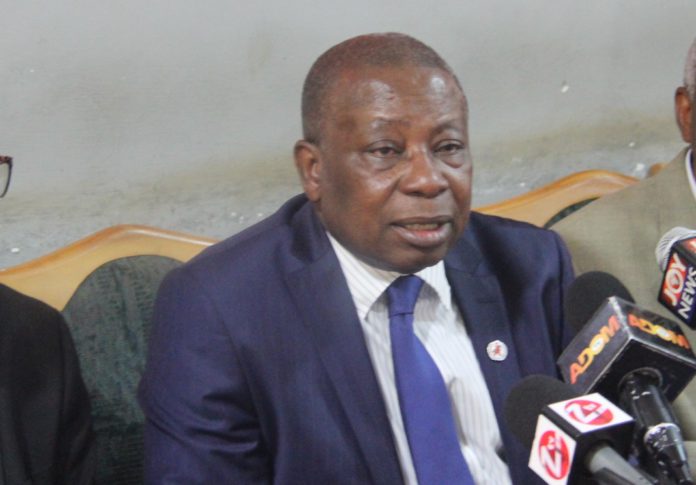Minister of Health, Kwaku Agyeman-Manu, has called for an immediate intervention to discharge the huge number of persons sent by the law courts to the various mental health facilities for treatment and care.
He said, “most of these people are fully cured of their ailment yet continue to live at the facilities. We feed them and they occupy the places and it seems the hospitals are being used as an extension of the prisons which should not be so”.
The Health Minister explained for instance that out of the about 150 patients currently on admission at the Accra Psychiatric Hospital Forensic ward, 100 were referred from the courts.
The Ministry had no other option than to discharge these persons to go home, since the courts had failed to pursue their cases over the years, adding that their continuous stay in the facilities was a heavy burden on the already scarce resources of the health institutions.
Mr Agyeman-Manu said the Ministry was going to write Memos to the Ministry of Interior, the Attorney-General, the Ghana Police and Prisons Services respectively, for the swift uptake of these persons in the next one month, and if not, the Ministry would be left with no choice than to release them to go home.
Mr Agyeman-Manu made the call in Accra when he inaugurated an 11-Member Governing Board for Ghana’s Mental Health Authority (MHA).
The Board would be Chaired by Mrs Estelle Matilda Appiah, the President’s nominee, with members including Prof. Akwesi Owusu Osei, the Chief Executive Officer of the Mental Health Authority, Mr Kwesi Assan-Brew, Ministry of Interior, Dr Anthony Adofo Ofosu, Ghana Health Service, and Mrs Evelyn Daawee-Keelson, Office of the Attorney-General.
Mr Emmanuel Owusu-Ansah, Mrs Janet Naa Karley Amagatcher and Prof. Angela Ofori-Atta, were all nominees of the Minister, while a representative each from the Ministry of Health, Ministry of Social Welfare, and Tertiary Medical Training Institution respectively, were also approved as members.
Mr Agyeman-Manu led the Members to swear the Oaths of Office and that of Secrecy and thanked them for availing themselves for service to the nation.
He charged the Board to work towards increasing advocacy and funding to improve the mental health status of Ghanaians.
He, however, grieved over the fact that the separation of the institutions that used to be under the Ministry but were now independent had created a wide funding gap between those whose activities could generate revenue internally to support their operations, and those that do not, making orphans of the underprivileged ones such the Mental Health Authority.
The Health Minister said the government was committed to improving mental health care through interventions such as the “Agenda 111,” increasing funding into the area, and enrolling mental health onto the National Health Insurance Scheme (NHIS).
The Ministry was also working to set up mental health facilities to serve the Northern, Southern and Middle zones of the country to complement the existing ones, he said.
Mr Agyeman-Manu stated that Ghana could now boast of about 50 Psychiatrists compared to previous years when there were just about a few in the system and indicated that the Ministry hoped to post them evenly soon to advance mental healthcare in the country.
Prof. Akwesi Osei, said it was very sad that 10 years after the passage of the Mental Health Act 846, of 2012, the Mental Health Levy was yet to be instituted, adding that “the law runs on the establishment of the mental health levy and until we get that, we won’t have the full benefit of it”.
He further explained that it was the levy that would provide the required funding for the full implementation and to effectively run the sector.
Prof. Osei appealed to the corporate institutions and the public to support the Authority to achieve its mandate of promoting the rights of persons suffering from mental health challenges and providing them with the needed quality treatment and care.
Mrs Appiah said the Board would evaluate the Mental Health Act and push for the necessary amendment to be made to it to enable it to achieve its objective.
She said the review of the Act would also come out with policies to increase funding and other resources to prevent the brain-drain of mental health professional, as well as ensure the protection of the fundamental human rights of persons with mental health challenges.

